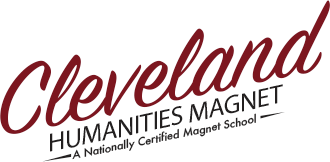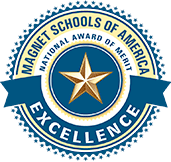11th Grade
Reimagining What’s Possible: Activating Literacy as a Pathway to Critical Consciousness
“Only in this connection of knowledge and
social action can education generate the understanding
necessary for the continued existence of democracy.”
– John Dewey
Part One: A Philosophic Introduction
Like Dewey, it is the belief in the 11th grade that education should offer the tools necessary to critically examine society in order to connect knowledge with social action. The major theme of this year is that by developing literacy, it is possible to become critically conscious about the various entities that have influenced society in order to become what educational theorist Dr. bell hooks calls “enlightened witnesses.”
In his “Moral Obligations of Living in a Democratic Society,” Cornel West states, “One of the fundamental questions of our day is whether the tradition of struggle…the struggle for decency and dignity, for freedom and democracy…can be preserved and expanded.” During the course of the year, we will explore the American struggle both historically and personally as a way of preserving and expanding our identities as members of a democracy and as members of the larger human community. Through the works of Pulitzer Prize winning historian Howard Zinn, we will study the historical efforts to be accepted as full participants in the democratic process.
We will also explore the research of social scientists such as Dr. Howard Gardner and Dr. Daniel Goleman, as well as theorist Dr. Beverly Tatum to gain a greater understanding of how current realities have shaped identity and relationships. The aim is to question, study, and mutually reimagine the possibilities for greater critical consciousness that will allow us “to form a more perfect union.”
Part Two: The CORE 11 American Studies Outline
The thematic units form the basis of the analysis of American culture. These units are comprised of materials from academic institutions providing the most current perspectives on class, race, and gender. The curriculum is aligned with the research based goals of Multicultural Education in which students are, according to Professor Christine Bennett, “encouraged to develop a ‘critical consciousness’ through which they learn to challenge social injustices.” Because society is becoming increasingly diverse, we must develop historical, cultural and racial literacy to engage with those who are different from ourselves.
UNIT 1: THE THINGS WE CARRY: FOSTERING EMOTIONAL LITERACY TO BENEFIT THE COLLECTIVE
This unit will be an introductory exploration of the key concepts and the analytical tools we will use to read American society through the lenses of class, race, and gender. We will read Tim O’Brien’s acclaimed novel, The Things They Carried and apply various techniques, offering students a way to not only read literature, but also analyze themselves and the world around them. To become more fully literate of the world around us, we must think critically about definitions of intelligence, how we are socialized, how our behavior impacts others, especially when working with others, and how we can communicate more effectively.
UNIT 2: THE AMERICAN JUNGLE: GAINING HISTORICAL LITERACY TO UNTANGLE NOTIONS OF DEMOCRACY, MERITOCRACY AND THE AMERICAN DREAM
The purpose for this unit is to develop historical literacy in order to examine how the concept of meritocracy persists despite the social realities that are often hidden from view. The unit will begin with a series of interdisciplinary workshops based on a historical analysis of the irony of the vision for freedom as established in the Constitution, while the realities of slavery and Native American genocide occurred simultaneously. We will then explore democracy, meritocracy and the American Dream that have become a part of the American mythology. To do this, the curriculum will highlight some of the voices who were critical of the “Dream,” namely Transcendentalists like Ralph Waldo Emerson and Henry David Thoreau, and those who despite all of their efforts could not attain success, as seen in August Wilson’s Fences and Arthur Miller’s Death of a Salesman. We will conclude the unit by reading and recreating F. Scott Fitzgerald’s quintessential American novel on the unfulfilled lives of the upper class, The Great Gatsby, with our fabulous interpretation entitled “The Gatsby Dinner Party.”
UNIT 3: HUMILITY AND BOLDNESS: DEVELOPING RACIAL LITERACY TO EXPAND AMERICAN DEMOCRACY
Through the frameworks of psychology and sociology as presented by Dr. Beverly Tatum and Dr. Allan Johnson, we will develop racial literacy by exploring the history and evolution of race relations in this country. In doing so, we will highlight the multi-faceted perspectives of White people and People of Color. Additionally, we will analyze how ideologies, such as white supremacy, have influenced racial inequality and shaped our social and individual identities. By engaging in honest and direct cross-cultural dialogue, the goal is to reimagine possibilities to counteract racial injustice and promote racial justice.
UNIT 4: UNRAVELING THE GENDER KNOT: ACQUIRING GENDER LITERACY TO PROMOTE EQUITY
The concluding unit will be a study of America through the acquisition of gender literacy, highlighting the problematic effects of patriarchy on all genders. We will begin with a look at the constrictive ideologies of what it is to be a “man” or “woman” and how limiting gender roles affect the dynamics of relationships. Excerpts from Alice Walker’s The Color Purple, Maxine Hong Kingston’s Woman Warrior, and Sandra Cisneros’ Woman Hollering Creek, will give voice to the “intimately oppressed” within the traditional model of gender relations. We will also explore homophobia, transphobia, and heterosexism as expressions of fear and ignorance that affect social encounters and prohibit the full expression of identity. Looking carefully at these troubling dynamics can help us meet the challenge to create a truly democratic society, one of equality and equity.
We look forward to an engaging and inspiring year!


